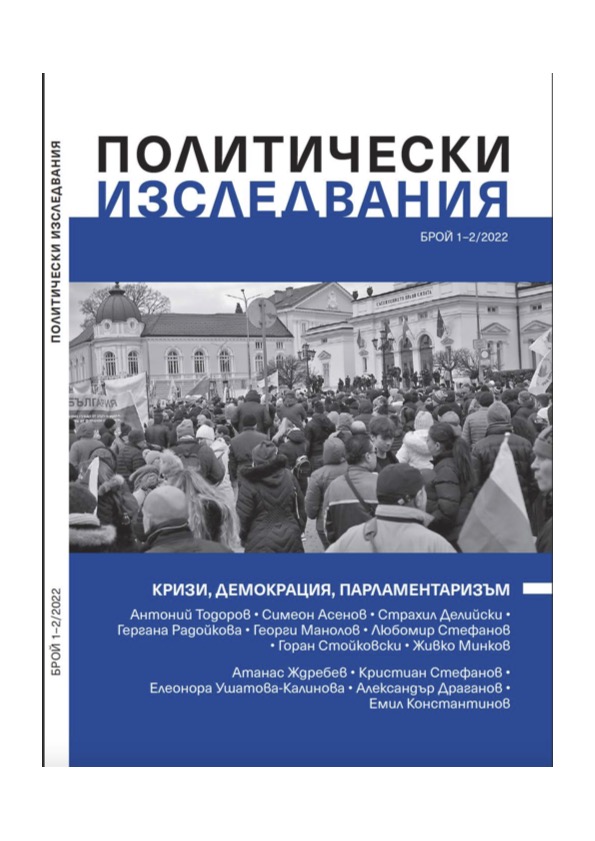Кризата на демократичния парламентаризъм като последица от кризата на неолиберализма
The Crisis of Democratic Parliamentarism as a Consequence of Crisis of Neoliberalism
Author(s): Goran StojkovskiSubject(s): Politics / Political Sciences, Political Sciences
Published by: Българска асоциация за политически науки - БАПН
Keywords: neoliberalism; capitalism; democratic parliamentarism; crisis
Summary/Abstract: In a concise manner the present article examines the deformation of demo- cratic parliamentarism as well as the weakening of democracy in general. Thisnegative evolution has occurred as a result of the influence of dogmatized and globalized neoliberalism. In the last few decades, this ideology has exerted this impact on national economies and the policies of countries around the world. Instead of a process in which different national authorities exercise control and balance with each other in order to protect the political rights of the local peo- ple (citizens’ rights, the rights and the interest of the people) – the modern par- liamentarism has transformed into a process in which competing international, multinational and transnational capital fight each other to master the local leg- islative process.The crisis of democratic parliamentarism arose as a result of the separation of political power from the citizens, and its center shifted to the sphere of the economy. In other words: the political has consciously lost in favor of the eco- nomical.In short, the doctrine of neoliberalism is: insertion overdose of liberalism into excessively economized politics. As a consequence, this led to a crisis of democratic parliamentarism.In this sense, today in the modern age, democratic parliamentarism is per- ceived by citizens as a legislative process that has become an opaque activity carried out by various political representations that protect interests and pur- sue goals important not to citizens but rather to global transnational and foreign capital, whether that capital is of Western or Eastern origin. In this way however, this dogmatized ideology inadvertently benefited primarily Chinese and later Russian capital in their competition with Western-type capitalism.
Journal: Политически изследвания
- Issue Year: 1/2022
- Issue No: 1-2
- Page Range: 85-92
- Page Count: 7
- Language: Bulgarian
- Content File-PDF

